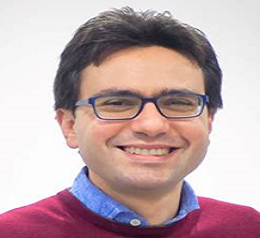Paolo Trucillo
University of Naples Federico II, Italy
Title: Drug carriers production through the use of conventional and supercritical assisted processes
Biography
Paolo Trucillo is a researcher in material science and technology and assistant professor in chemical plant design, at the Department of Chemical Engineering, Materials and Industrial Production Design, University of Naples Federico II, Italy. He has a PhD in industrial engineering and has expertise as a process engineer in many fields of application, such as nutraceutical, pharmaceutical and cosmetic.
He has an expertise in the production of liposomes, niosomes and nanostructured lipid particles using processes assisted by conventional, sub-critical and supercritical fluids. He is also an expert in high-pressure foaming processes for the production of polymeric drug carriers loaded with active principles. He has worked on conventional and supercritical assisted processes for the extraction of essential oils from natural matter, for the following encapsulation in drug delivery systems.
Abstract
Drug carriers are objects characterized by double function of transportation and protection of the entrapped drugs. Therefore, they are designed to avoid drug degradation phenomena, which are often responsible of poor bioavailability. This resulted in an improved efficiency, preserving drug properties during administration and reducing side effects such as toxicity. However, drug carriers properties can be improved according to manufacturing parameters, production processes and type or raw materials employed. Depending on process operating parameters, it is possible to tune mean dimensions at micrometric or nanometric level, encapsulation efficiency and membrane permeability. Moreover, the choice of the most powerful process and operating parameters can affect drug release kinetics, either in case of natural release, either for external stimuli activation, such as temperature or pH variation.
For the production of drug carriers, different techniques have been developed in batch or in continuous operating mode. Conventional methods generally suffer of poor replicability, high solvent residue, low encapsulation efficiency and high dispersion of particle distributions. High-pressure systems have been developed to overcome those problems and to guarantee high stability of drug carriers over long times. The high-pressure jet break up of a continuous flow results in particle dimensions reduction, increase of drug entrapment efficiency and increased bioavailability.
In order to provide pure essential oils and other active principles for the encapsulation in drug carriers, extraction processes have also been employed; conventional methods such as maceration and percolation suffer of several drawbacks such as long operating times, contamination, reduced efficiency and high environmental impact. However, novel methods were developed to improve process efficiency, such as Naviglio Extractor (NE) and Supercritical Fluid Extraction (SFE), which can be used to extract active principles from waste materials of different manufacturing fields. In details, SFE uses low-impact solvents, while NE even manages to avoid completely organic solvents.
 14-15 Nov 2022
14-15 Nov 2022  TIME Asma Hotel Albarsha, Dubai, UAE & Online
TIME Asma Hotel Albarsha, Dubai, UAE & Online 
